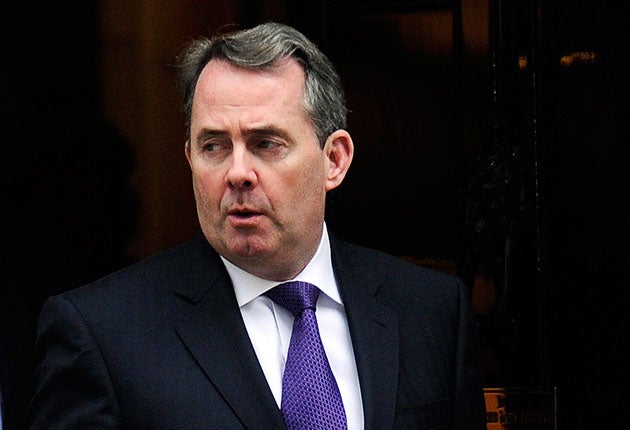Western military advisers become visible in Benghazi
Former Royal Navy officer is 'consultant' to rebels and small British convoy say they are 'engineers'

Your support helps us to tell the story
From reproductive rights to climate change to Big Tech, The Independent is on the ground when the story is developing. Whether it's investigating the financials of Elon Musk's pro-Trump PAC or producing our latest documentary, 'The A Word', which shines a light on the American women fighting for reproductive rights, we know how important it is to parse out the facts from the messaging.
At such a critical moment in US history, we need reporters on the ground. Your donation allows us to keep sending journalists to speak to both sides of the story.
The Independent is trusted by Americans across the entire political spectrum. And unlike many other quality news outlets, we choose not to lock Americans out of our reporting and analysis with paywalls. We believe quality journalism should be available to everyone, paid for by those who can afford it.
Your support makes all the difference.The first discernible signs of mission creep by the coalition were detected in Libya yesterday. In several places around Benghazi, there were palpable signs that Western "assistance" was active on the ground.
Military and diplomatic operatives from the US and Western Europe – usually described as experts, consultants and advisers – turned up in the rebel capital, Benghazi. These include UK personnel, among them a former Royal Navy officer who had recently served as a diplomat in Afghanistan. He said he was in Libya as a consultant to the opposition administration.
A group speaking with English and Scottish accents was encountered on the road out of Benghazi towards the front line in three four-wheel-drive cars. They said they were carrying out engineering maintenance work. If such personnel are now operational, can military trainers be far behind?
Meanwhile, on the questioning of the former Libyan foreign minister Moussa Koussa, the silence from Whitehall and No 10 continues to be deafening. Far from suggesting that his conversations with his inquisitors – somewhere in southern England, to use the popular, melodramatic phrase – are fruitless, there is no way of knowing whether they have spurred delicate negotiations or are proving less productive than first thought. Government sources were, understandably, not eager to speculate yesterday.
Ministers were only marginally more forthcoming, the Defence Secretary, Liam Fox, appearing on Sky Television and Radio 4's Today programme to say that he was convinced there was "division" in Gaddafi's regime and that its members should recognise it "no longer has any legitimacy". Asked about the treatment of Mr Koussa, and whether he had received any promises, especially about possible questioning of him over the Lockerie bombing in 1988, Mr Fox replied: "We are not going to give an ongoing discussion about that."
There was last night at least some practical progress to report – on the humanitarian front. Ukraine announced it will send a ship to evacuate 600 Ukrainians, Americans, Britons and other foreigners wishing to leave Libya. Britain said it will provide emergency shelters for 10,000 people driven out of their homes. Some 2,100 tents are being flown out from UK stocks in Dubai, and will be distributed by the Libyan Red Crescent. The aid is expected to be focused around the Ajdabiya area in the north-east of the country. Another expert from Britain is to join a Turkish-UK-US humanitarian planning team based in Ankara helping with "emerging and urgent needs" in Libya.
The International Development Secretary, Andrew Mitchell, said: "As fighting continues in Libya, we need to ensure that the most vulnerable get the protection they need. That means shelter for those who suddenly find themselves driven out of their homes and often cut off from friends and family in their own country.
"It's also about ensuring that we continue to provide help to poor migrant workers having to flee Libya, and that we get people in place to look at ongoing needs and how best we can meet them."
Join our commenting forum
Join thought-provoking conversations, follow other Independent readers and see their replies
Comments